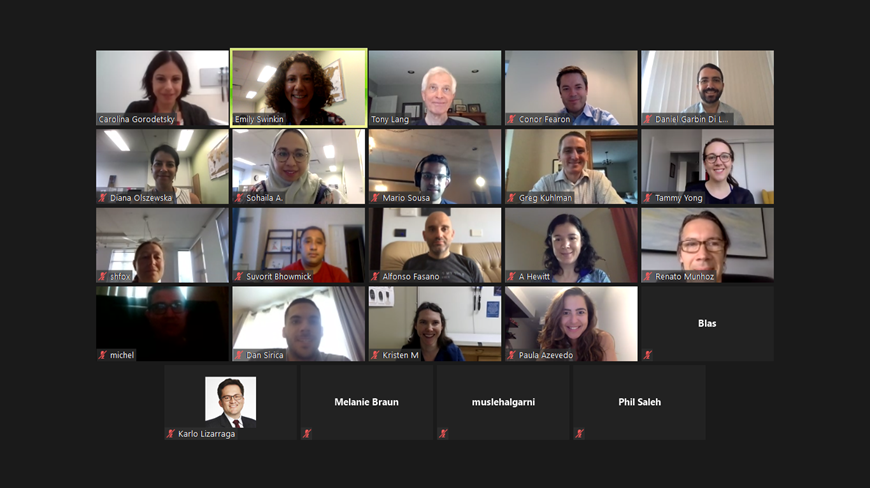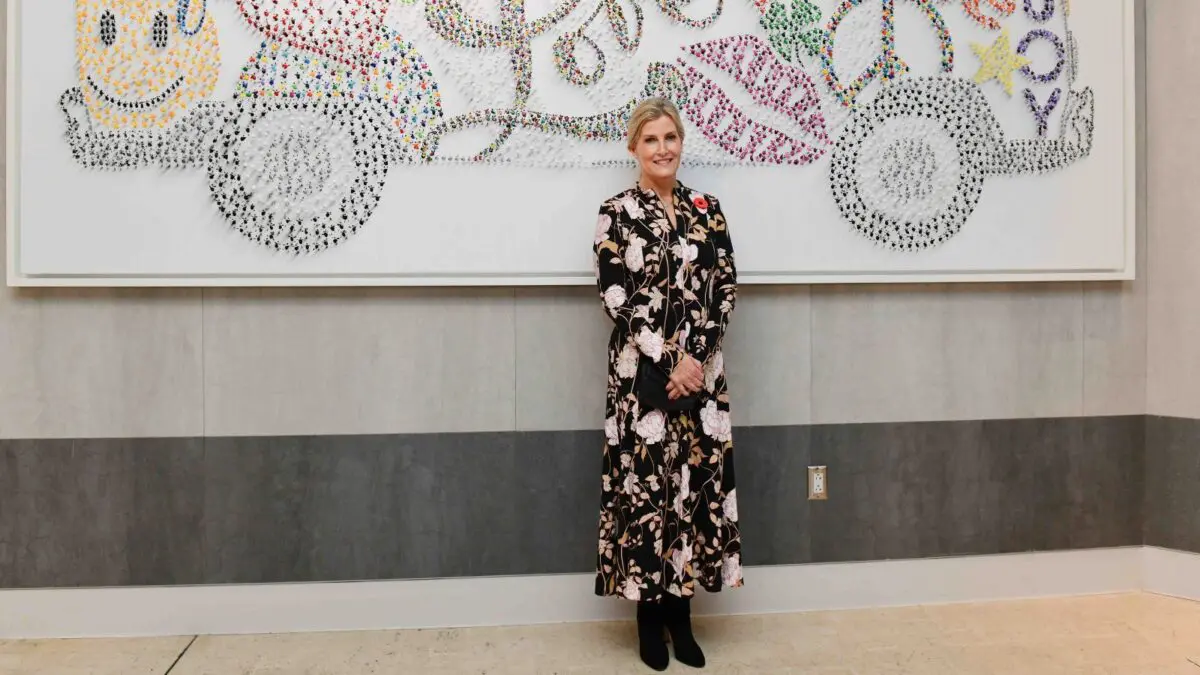
Every Monday and Wednesday morning, attendees from Canada and the United States join the Movement Disorders Clinic’s virtual video rounds and journal club
How is UHN advancing treatments for Parkinson’s disease and ensuring patients receive the best possible care? It starts with education. Unfortunately, when COVID-19 hit, much of the in-person teaching that takes place within UHN had to be halted.
In response to the pandemic, Dr. Anthony Lang, director of the Movement Disorders Clinic at Toronto Western Hospital, is using innovation to meet the existing demands and increase the impact of UHN globally.
Under the direction of Dr. Lang, the Movement Disorders Clinic has teamed up with the Michael J. Fox Foundation in the United States to enable international recipients of the Edmond J. Safra Fellowship in Movement Disorders to participate in the Clinic’s regular video rounds, academic journal club and research rounds.
The Edmond J. Safra Program in Parkinson’s Disease and the Morton and Gloria Shulman Movement Disorders Clinic is championing safe, clinical collaboration during the COVID-19 pandemic. Sensing an opportunity in a time of crisis, they are connecting neurologists not only in Toronto, but globally using virtual online platforms.
“We felt that it was very important to maintain our educational series during the pandemic,” says Dr. Lang. “We have the largest fellowship program in the world right here in Toronto focusing on all disciplines – from general movement disorders, to deep brain stimulation and advanced therapies for movement disorders, to people working in electrophysiology and imaging and laboratories. We didn’t want to see our very active academic program shelved and curtailed after COVID closed our clinics, making it impossible to meet the way we have in our conference room, so we decided to go virtual.”
Dr. Lang’s decision to expand virtual rounds to Safra Fellows, alongside local faculty and students, has proven to be very effective in bringing international experts together. Since March, neurologists from around the world have been logging in twice a week to participate in online sessions related to Parkinson’s disease and other movement disorders. These virtual sessions provide unique, engaging learning opportunities and encourage meaningful discussions and collaborations that would not otherwise have been possible.
Video rounds are incredibly helpful for neurologists, as movement disorders are diagnosed based on a clinician’s ability to recognize visual patterns of abnormal movement and clinical symptoms presented in patients. Videos of case studies are analyzed each week in order to teach attendees how to properly identify the type of movement disorder, discuss potential issues, and initiate the right kind of therapy. The journal club provides fellows with the opportunity to present on important, relevant medical literature and evaluate how these academic studies impact the field of movement disorders. Finally, the research rounds, which are held every two or three weeks, allow faculty in the Clinic to present on their current research and projects and highlight their progress. Dr. Lang expects Safra Fellows will soon begin presenting in these rounds to further propel research and thoughtful discussions.
“We want to give our students and faculty the best learning opportunities in our field. Education is a critical component of academic medicine, and with widespread use of technology – especially now – we are able to connect and collaborate with centres and clinics from all over,” says Dr. Lang.
The Movement Disorders Clinic is recognized internationally for providing groundbreaking research and delivering expert care to its patients, and Toronto is leading the charge in providing education around movement disorders and Parkinson’s disease. The Clinic will continue to offer its virtual academic programming on a broader scale, with the potential of continuing on after the pandemic. In a time of great uncertainty, there is hope that these virtual rounds will strengthen global partnerships and build upon shared knowledge, ultimately improving patient care.


